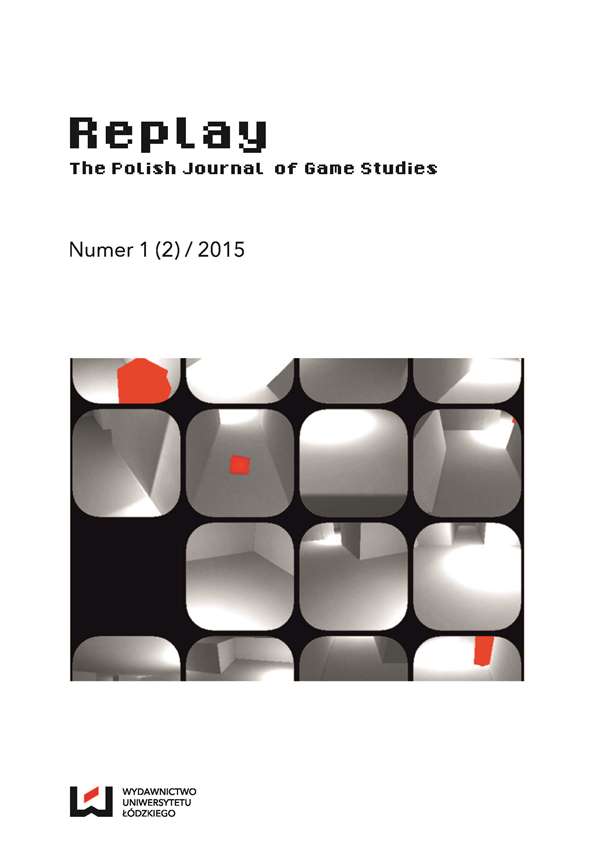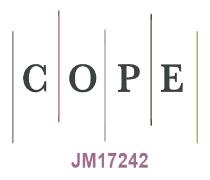El Presidente tries you: the mechanisms of gamers’ productivity capitalization in “Tropico”, “Torchlight” and “Diablo” video game series
DOI:
https://doi.org/10.18778/2391-8551.02.01Keywords:
productivity, ideology, monetization, action-RPG, tycoonAbstract
In popular economic discourse, productivity is the ratio of the value of manufactured goods to the initial input. In games, the input can be placed on the players’ side: players invest their time, financial resources, and cultural capital in order to achieve certain benefits, which are “produced “ in the course of the game. The status of this benefit is dependent on the context, but developers make such players’ productivity a key strategy used in promoting and maintaining a game and its fan base. The paper analyses three games: "Tropico III", "Diablo III" and "Torchlight II", in the context of ideological underpinnings of game mechanics that support the notions of using fan’s free labour, taking advantage of their non-game activities via the auction house and forcing them to internalize neo-colonial stance, respectively.
References
Aarseth, Espen, 2008, Walczyłem przeciw prawu: wywrotowa gra i gracz implikowany, tłum. Piotr Wojcieszuk, „Kultura i Historia”, nr 13, http://www.kulturaihistoria.umcs.lublin.pl/archives/884.
Google Scholar
Bomba, Radosław, 2014, Gry komputerowe w perspektywie antropologii codzienności, Toruń: Wydawnictwo Adam Marszałek.
Google Scholar
Campbell, James, 2008, Just Less Than Total War. Simulating World War II as Ludic Nostalgia, [w:] Zach Whalen, Laurie N. Taylor (red.), Playing the Past. History and Nostalgia in Video Games, Tennessee: Vanderbilt University Press, s. 183–200.
Google Scholar
DOI: https://doi.org/10.2307/j.ctv16759mn.14
DeSanto, Mark, 2012, Interview: Max Schaefer, CEO of Runic Games, [dostęp:12.05.2016] http://eat-games.tumblr.com/post/24969892500/max-schaefer-interview-torchlight2.
Google Scholar
Diablo III – Blizzard’s Top Tips for Inferno Mode [Promocyjny materiał wideo]. (2012, 6 maja). IGN. Dostęp: http://www.ign.com/videos/2012/05/06/diablo-iii-blizzards-top-tips-for-inferno-mode?objectid=714955.
Google Scholar
Frasca, Gonzalo, 2003, Simulation Versus Narrative: Introduction to Ludology, [w:] Mark J.P. Wolf, Bernard Perron (red.), The Video Game Theory Reader, New York: Routledge, s. 221–236.
Google Scholar
Fuller, Matthew, 2003, Behind the Blip. Essays on the Culture of Software, Brooklyn: Autonomedia.
Google Scholar
Hillier, Brenna, 2012, Diablo III Inferno Mode Twice as Difficult as Internal Testers Approved, “vg24/7”, [dostęp: 12.05.2016] https://www.vg247.com/2012/05/07/diablo-iii-inferno-mode-twice-as-difficult-as-internal-testers-approved/.
Google Scholar
Kücklich, Julian, 2003, Perspectives of Computer Game Philology, „Game Studies”, vol. 3 issue 1, http://www.gamestudies.org/0301/kucklich/.
Google Scholar
Kücklich, Julian, 2005, Precarious Playbour: Modders and the Digital Games Industry, „The Fibreculture Journal”, issue 1, http://five.fibreculturejournal.org/fcj-025-pre-carious-playbour-modders-and-the-digital-games-industry/.
Google Scholar
Llyria, (2013, 17 września). Diablo III Auction House Update FAQ [Post na forum internetowym]. Dostęp: http://us.battle.net/d3/en/forum/topic/9972208129.
Google Scholar
Magnet, Shoshana, 2006, Playing at Colonization. Interpreting Imaginary Landscapes in the Video Game Tropico, “Journal of Communication Inquiry”, vol. 30 nr 2, s. 142–162.
Google Scholar
DOI: https://doi.org/10.1177/0196859905285320
Malliet, Steven, 2007, Adapting the Principles of Ludology to the Method of Video Game Content Analysis, “Game Studies”, vol. 7 issue 1, http://gamestudies.org/0701/articles/malliet.
Google Scholar
NiDBiLD, (2012, 22 maja). The replayability of Diablo 3 – Long critique [Post na forum internetowym]. Dostęp: http://eu.battle.net/d3/en/forum/topic/4209934342.
Google Scholar
Salan, (2014, 23 października). SynergiesMOD turns 2 years old, with 300,000 steam subscribers! [Online forum post]. Dostęp: http://forums.synergiesmod.com/index.php?topic=5341.0
Google Scholar
Wirman, Hanna, 2009, On Productivity and Game Fandom, „Transformative Works and Cultures“, vol. 3, http://journal.transformativeworks.org/index.php/twc/article/view/145/115.
Google Scholar
DOI: https://doi.org/10.3983/twc.2009.0145
PC Gamer, 2010, Torchlight II Interview with Runic Games, [dostęp: 12.05.2016] http://www.pcgamer.com/torchlight-2-interview-with-runic-games/#page-4.
Google Scholar
United States Army, 2002–2013, America’s Army, USA: United States Army.
Google Scholar
Valve Corporation, 1999 (mod) / 2000 (wersja pudełkowa), Counter-Strike [PC], USA: Vivendi.
Google Scholar
Blizzard Entertainment, 2012, Diablo III [PC], USA: Blizzard Entertainment.
Google Scholar
Valve Corporation, 1998, Half-Life, USA: Sierra Entertainment.
Google Scholar
DOI: https://doi.org/10.1016/S1359-6128(98)90233-6
Runic Games, 2012, Torchlight II [PC], USA: Perfect World.
Google Scholar
Haemimont Games, 2009, Tropico III [PC], Bułgaria/Niemcy: Kalypso.
Google Scholar
Downloads
Published
How to Cite
Issue
Section
License

This work is licensed under a Creative Commons Attribution-NonCommercial-NoDerivatives 3.0 Unported License.










